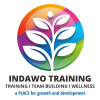Our Training course strives to develop exceptional leaders: leaders that know who they are and what they stand for; leaders that are authentic and act in an ethical manner; leaders that can inspire people with a shared vision and leaders with have a well-developed Emotional Intelligence (EQ)

Our Training course strives to develop exceptional leaders: leaders that know who they are and what they stand for; leaders that are authentic and act in an ethical manner; leaders that can inspire people with a shared vision and leaders with have a well-developed Emotional Intelligence (EQ)
Course Outline:
Module 1: Introduction to Leadership
Understanding the difference between a Leader and a Manager
The role of a Leader
Leading the ethical and morally responsive way
What difference do I make?
Leadership attitude during difficult times
The new demand VUCA Generation of Leadership, what does it look like
Humanising the Work place
The Psychology of Good Leadership
Module 2: Leading yourself first
“The strongest leaders are those who are lifelong students.” Individuals may think they know and understand themselves, however, they are generally surprised to discover how little they actually know about themselves.
This course is an invitation to go on a journey of self-awareness and to develop essential and professional interpersonal skills. Start your personal leadership journey into self-discovery and get to know yourself first.
Assessing Your Personality Type
Assessing your Leadership Style
Creating your Own Performance Card
Developing your Own Leadership Brand
Module 3: The 6 Q’s of Leadership
IQ: Intelligence
TQ: Operational Skills
MQ: Motivation
XQ: Experience
PQ: People – from command and control to listening and guiding
LQ : Learning
Module 4: Emotional Intelligence
Self-Awareness
Understanding Emotions
Perceptions: How do others see Me
Self-Expression: talking about emotion
Self-Management
Anger Management
Understanding Types of Anger
De-escalating Techniques
Stress Management
Emotional Fitness
Social Awareness
Social Conformity and Social Media
Social IQ and Social Sensitivity
Organisational Awareness
Social Management
Talking to Difficult People
Building Relationships at Work
Conflict Management in Teams
Coaching & Mediation for Teams
Module 5: Communication
Non-Verbal Communication / Body Language
The Art of Reading people
Understanding Written Communication
Social Media Communication
Diversity and Inclusion
TA and Communication Styles
Passive Communication
Aggressive Communication
Depressive Communication
Assertive Communication
Listen with your EAR
Empathy – U/S vs Acknowledgement
Assertiveness – “I feel Statements”
Respect meaning and understanding
Personalisation
Not taking things Personally
Boundaries with over-owning emotions
Denial, Rationalizations, Justifications
Talking about Talking
The Approach
Taking Ownership (Admitting mistakes)
Ask Questions – Clarification, Anxiety
Linguistics – Conversational Language
Concise, Clear Confidant
Communication in the Workplace
Communicating to an Audience /Teams
Principles of Effective Communication
Delegation Conversation Technique’s
Commitment & Accountability
Positive Feedback and Criticism
Resistance and Change as a by product
Dealing with Office Politics
Communication Errors
Defensiveness, Counter Attack
Labelling, Mind Reading
Diversion & Derailment
Passive Aggression, Sarcasm
Denial, Self-Blaming
Problem-Solving & Helping
Blaming & Scape-Goating
Cognitive Distortions & Emotional Reasoning
Rationalisations, Projections
Mental Filtering; All-or-Nothing Beliefs
Generalisations; Assumptions
Blaming; Ownership; Accountability
Facts or Opinions; Should Statements
Module 6: Conflict Management
Understanding Types of Conflict
Sources & Organisational Conflict
Communication in Conflict
Negotiations Strategies and Processes
Defusing Techniques
Module 7: Leading Teams
Bringing others on the journey
Building high performance teams
Leadership styles for effective teams
Driving attitude, accountability & ownership
The way forward
Indawo Training is setting a much needed all new industry standard and surpassing all previous training models. The Corporate Training environment has been given a much needed make over with our innovative design. Breaking all the rules and making a statement, Indawo Training offers several new firsts in personalised training.
As a premier Corporate Training company, we are committed to empowering your employees with the skills and knowledge they need to thrive in today’s dynamic South African business landscape.
© 2025 coursetakers.com All Rights Reserved. Terms and Conditions of use | Privacy Policy